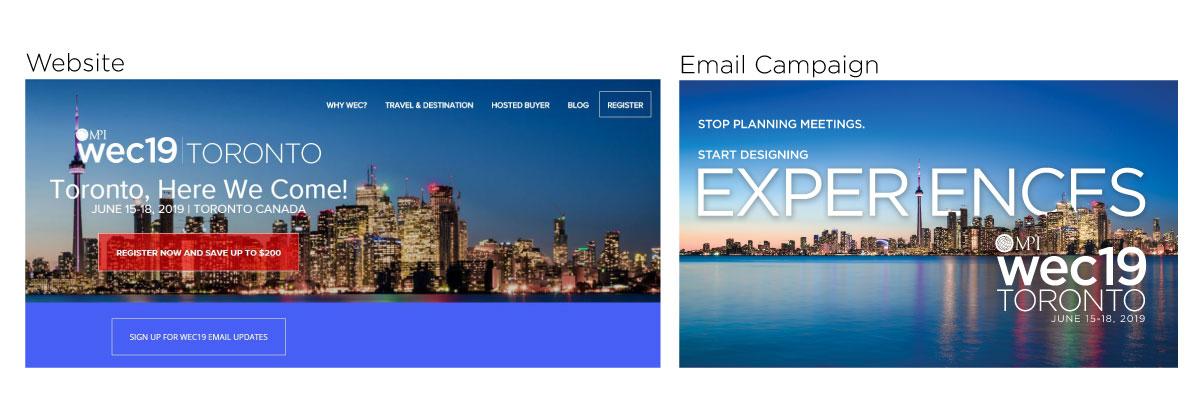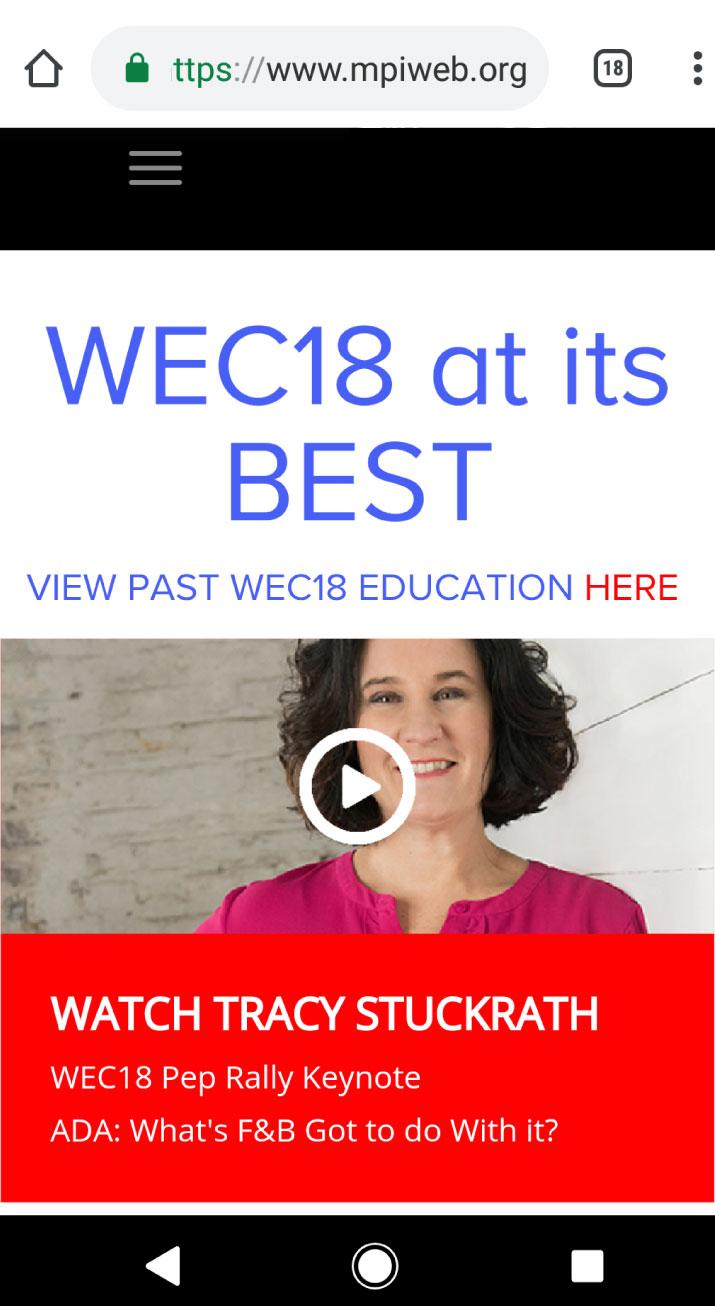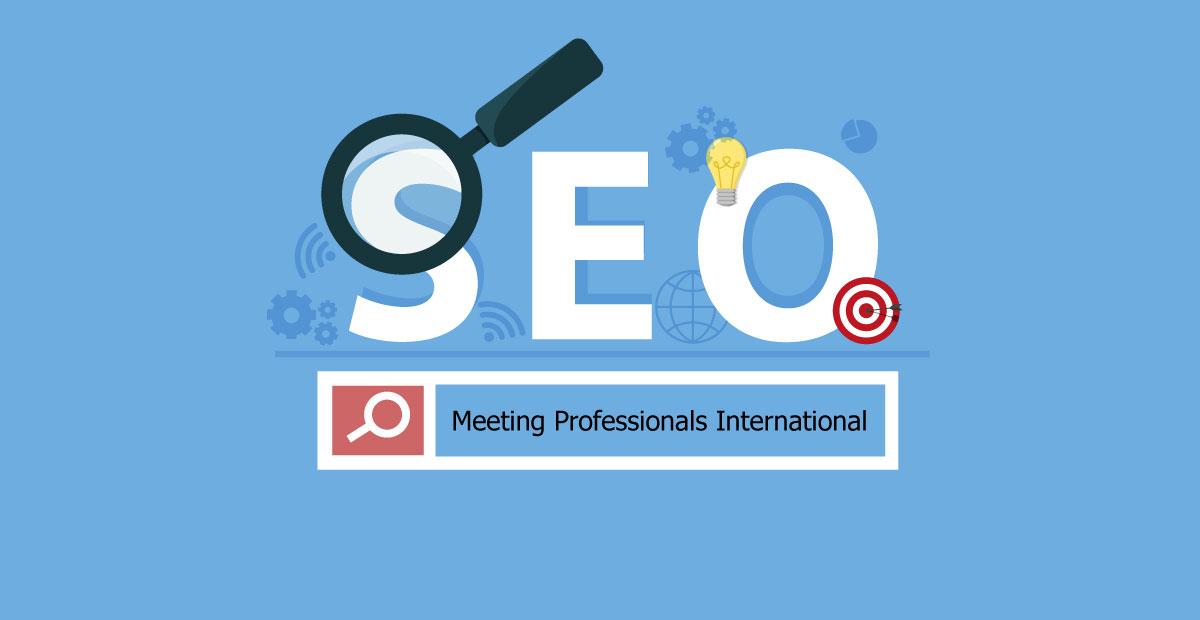You’re planning a professional event. You’ve booked your venue so you know when and where the event will be held. You know who you want to attend the event. Hopefully you have a clear understanding of the different personas that make up your target audience—the demographics, the mindsets, needs, wants and interests. As I wrote last month, knowing the characteristics of your audience is essential to successfully marketing your event.
Now, how do you advertise the value of your event to prospective attendees? How and where should you promote your event so the attendees you desire can discover it? Let’s take a look at some event website and search engine optimization (SEO) best practices—you want your attendees to find your event easily and through search channels they’re already familiar with.
Event Website: Your Online Home
You can begin creating your website or webpage as soon as the event details are established. It’s the quickest and easiest way to direct potential attendees to information about the event. If you have an existing website, you should create a dedicated landing page for the event and promote it prominently throughout your site or via a pop-up.
Critical Features of the Event Website
Brand your event with a consistent event image/logo that is displayed prominently on your website. Be sure to use the same image in your emails and social media.

MPI WEC19 Website
Write a compelling description of your event. Clearly describe the topic of your event, the venue, the schedule and who should attend. Highlight the benefits of attending for each type of attendee.
Ensure that the design of your site is mobile-friendly. Many people on-the-go use their phone more than their desktop computer. Make sure your audience can view your event site and clearly see its message on all types of devices.

Create an eye-catching design with large images and videos. This is a great way to make an impactful first impression with people who aren’t familiar with your event. The images will draw them in and get them interested in what else you have to offer.
Registration should be your biggest call-to-action (referred to as CTA by marketers). Whether it’s via a pop-up, button, image or large text, make sure to provide a very clear path to the registration form.
Consider creating a feature for your speakers, special attendees and notable vendors with pictures and bios. Attendees are drawn to great speakers and will often attend just to see their favorites. Represent them with photos and a short bio. Provide links to their websites and social media profiles to generate some buzz around them and hopefully get some links back.
Link to your event website everywhere. Promote your event with a link to the website on everything you can think of. Put it on social media profiles and add it to your email signature.
SEO Your Event Page
It may seem counterintuitive, and it was a tough lesson for us to learn as we built Convention Nation: build your site so Google and the other search engines can send their audience to your event page.
Don’t just build the site for your attendees—unless you don’t want new attendees! Sure, you may have spoken with many of them about your event, but if they can’t remember the exact URL and aren’t able to find it in a search, they may give up and decide your event isn’t worth attending.
And just think of the attendees who aren’t already your members. You’ll probably want your event website to appear on the first page of the search results whenever anyone searches for events on your topic. Sounds frustrating, right? Well, not so fast. We’ve done it—it takes some practice and a change of focus, but it creates great results.
First, think of a few targeted keywords for your event:
Cardiothoracic surgery? Commercial mortgages? Digital marketing? These are the words or phrases you think potential attendees will type into a search engine such as Google or Bing. Our suggested formula for this is to combine the event topic, the type of event and the name of your city. For example, “digital marketing conference San Diego.” Another example could be, “landscape architecture convention Dallas.”
Include these same keywords in the event description:
The event page description should use variations of the keywords several times. If it is a long description, break it up using headers and sub-heads with keywords in them.
Use title tags and headers with keywords in them:
Google will often scan these ahead of page text, so make sure to include your keywords to tell Google what your page is about.
Write a descriptive, concise meta description for your page:
Google doesn’t use these for ranking, but it is what users see when your site is displayed on the search engine’s results page. It should be about 155 characters long, include your keywords and accurately describe what the page is about. This will encourage your audience to click-through to your site when they find it on Google.
Link to the event page from your website, blog and anywhere else you can:
This will guide visitors to the page and let search engines know the page is relevant.
CN event sitesNot bad, right? Essentially what you’re doing is telling the search engines “I’m having an event for these people in thisindustry who are looking for information about this.” There. You’re done. Watch the registrations roll in. But if they don’t, feel free to take a look at other event websitesand see what kinds of titles and keywords they’re using on their sites. You may find inspiration for a variety of changes to your event!



